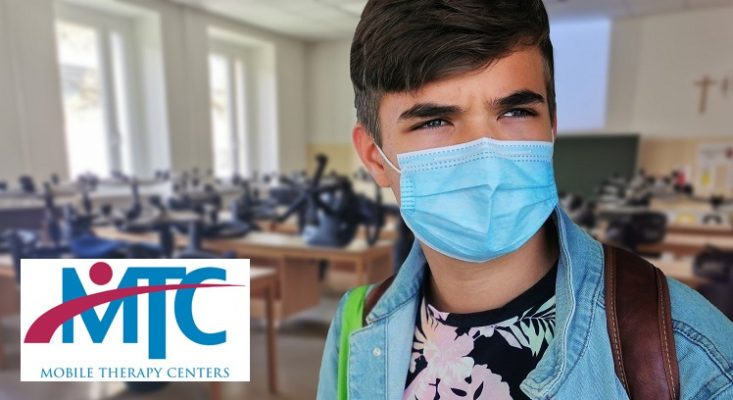

As we step into the month of October, we have been feeling the effects of COVID-19 for about 7 months now. As the seasons change from Summer to Fall, we are experiencing work, school and life through our new normal. For many adults, this means working from home, and for many children this has meant attending school remotely or under strict regulations for those returning to school in-person. As adults, many of us are equipped with the skills needed to understand, cope, and compartmentalize with the abstract concept of COVID-19 and a global pandemic. However, these skills are ones that have taken years to develop, and even with them, the number of adults suffering from anxiety, depression, substance abuse and other mental illnesses has increased by 40%, according to the CDC (Czeisler et al., 2020).
So what about our kids?
If as adults we are experiencing higher rates of mental illness, what does that mean for the children and adolescent population? Without fully developed coping mechanisms, self-regulation skills, and so much change happening around them, how are they dealing with the abstract concept of COVID-19? A survey conducted in the United States found that 40.1% of parents reported observing signs of distress in their children (Rosen et al., 2020).
New ways to help!
Acceptance and Commitment Therapy (ACT) is an approach that encourages individuals to stop avoiding, denying, and struggling with inner thoughts and emotions and instead, accept them as appropriate responses and continue moving forward. With regard to the global pandemic, ACT can be used to help tackle the worry or nervousness associated with going into public places, for example, returning to school. To help reduce associated anxiety, we can encourage and practice mindfulness breathing exercises with our children and students, as well as the 5 senses mindfulness activity, which focuses on 5 things that can be identified in a specific moment. The goal is to help encourage being present in the moment, rather than focusing on the past or future. These mindfulness activities require minimal materials and can be completed using paper and pencil, an iPad, or a child’s imagination, and are a great way to practice being present in the NOW.
Mobile Therapy Centers follows a multi-disciplinary, collaborative approach to evaluate and treat clients. Mobile Therapy Centers services include ABA Therapy, Speech Therapy, Occupational Therapy, Behavioral Therapy, Mental Health Care and Counseling. We see children at our clinic, at your home or at your child’s school/daycare making it convenient for you and your family. We also provide Telehealth services. If your child is having difficulty with these areas, call us at 847-816-7200 or contact us at https://mtcus.com for a free consultation.
References
Hayes, S. C., & Smith, S. (2005). Get out of your mind and into your life: The new Acceptance and Commitment Therapy.
Czeisler MÉ , Lane RI, Petrosky E, et al. Mental Health, Substance Use, and Suicidal Ideation During the COVID-19 Pandemic — United States, June 24–30, 2020. MMWR Morb Mortal Wkly Rep 2020;69:1049–1057. DOI: http://dx.doi.org/10.15585/mmwr.mm6932a1
Rosen, Z., Weinberger-Litman, S.L., Rosenzweig, C., Rosmarin, D.H., Muennig, P., Carmody, E.R., Rao, S.T., & Litman, L. (2020)., 2020. Anxiety and distress among the first community quarantined in the U.S. due to COVID-19: psychological implications for the unfolding crisis. .